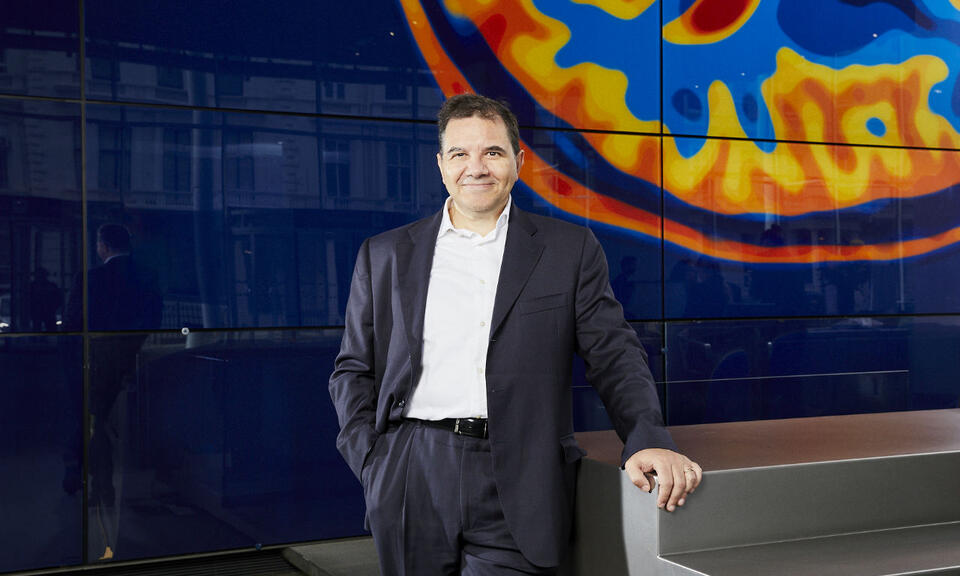
Published
Key themes
Professor of Strategy & Sustainability and Scientific Director of Imperial Business School's Leonardo Centre on Business for Society, Maurizio Zollo discusses his work as researcher, collaborator and activist
When Professor Maurizio Zollo joined the Business School in 2019, he set himself the challenge of conducting real field experiments among businesses to discover if there’s a better way of working. His goal remains to tackle thorny problems, such as how to combat the "I want it now" behaviour of business, how to challenge inequality, reconcile conflicting interests and include voices of those excluded from company boards.
Every business has a role to play in the green recovery, he says, as does every section of society – from politicians and voters to consumers and investors.
"Finding a solution to the challenges of climate change will require nothing less than the reinvention of the role of business in our society or, as we have termed it at Imperial Business School, a new 'logic for business'."
The “logic” underpinning a company starts with its business model, Professor Zollo explains, adding that it also feeds into its wider purpose and identity, its leadership mindset and culture, its growth and cooperative strategies, its incentive and control systems, and the actions and attitudes of all the partners in its supply chain.
Nowhere have I seen such a willingness and incentive to collaborate as at Imperial
"Our overarching question is how do firms evolve – how do they grow, change, improve? And how do they do this amid today’s social and environmental challenges? How can we, as researchers, help them to do that? It’s amazing that business doesn’t have a culture of experimentation in the way, say, that science or medicine does."
This is his goal as Scientific Director of the Business School’s Leonardo Centre on Business for Society – which harnesses the collective wisdom of Imperial’s scientists, and climate and sustainability experts, as well as the School’s best business brains. It was the spirit of collaboration that enticed him to Imperial Business School – that and the lure of living in London, which he loves. "I find it an amazing, fascinating city."
Before arriving in the UK, he served a decade on the faculty of Bocconi University – where he'd previously studied under the guidance of economist Mario Monti who became Italy’s prime minister from 2011 to 2013. This was after a decade at INSEAD, and he’s still visiting professor at the MIT Sloan School of Management and Bocconi.
Rethinking business
Before he began his academic career with a PhD in Management from Wharton, Professor Zollo worked as a consultant and investment banker. "But nowhere have I seen such a willingness and incentive to collaborate as at Imperial. I’ve been stunned by the goodwill towards the project, and the prospect of working among so many different research centres. It’s very innovative."
He wants to experiment with how companies can create value not only for shareholders but for everybody affected by a business:
"How to create economic and noneconomic worth not only for investors, but also clients, employees, suppliers, partners, communities." Should customers have a say in product development or pricing for instance, or should local communities have a say in suppliers? What about the methods companies use to create incentives or exert control – could these be rethought?
Of course, how you make this a reality rather than an ideal – listen to the perspectives of all those affected and give them power – is complex and requires profound change. "This model doesn’t exist at present – it’s nowhere to be seen. But it’s something the world needs badly amid the huge social and environmental challenges we face."
Business utopia
Professor Zollo compares the modern company to a castle: "A locked stronghold where only the management and investors are allowed in, while local communities and employees sit outside, and decisions are communicated down. Our idea is to open the castle and allow everyone to have a say." This might sound utopic, but he has no illusions about the difficulties entailed: “You will never please everyone.” Pilot projects, he hopes, could play around with this idea in a low-risk environment, with the support of rigorously designed experiments.
Imperial's medical expertise has a part to play in this inquiry, he says. He’s keen to build on his previous findings from neuroscience and management science that show a strong link between meditation and how managers perform. An individual who meditates not only improves their wellbeing but tends to have a longer-term perspective, think more creatively, frame problems differently and work more intuitively, he says. This could have a knock-on effect at a strategic level and help incorporate the views of people at many stages of the company.
Any change in business is risky, he says, and requires a leap of faith. “We need to create a space where experiments can take place in a safe environment and with the support of knowledgeable people. We have the freedom, the right and the duty to experiment with companies – it beats me why we haven’t done it before.”


